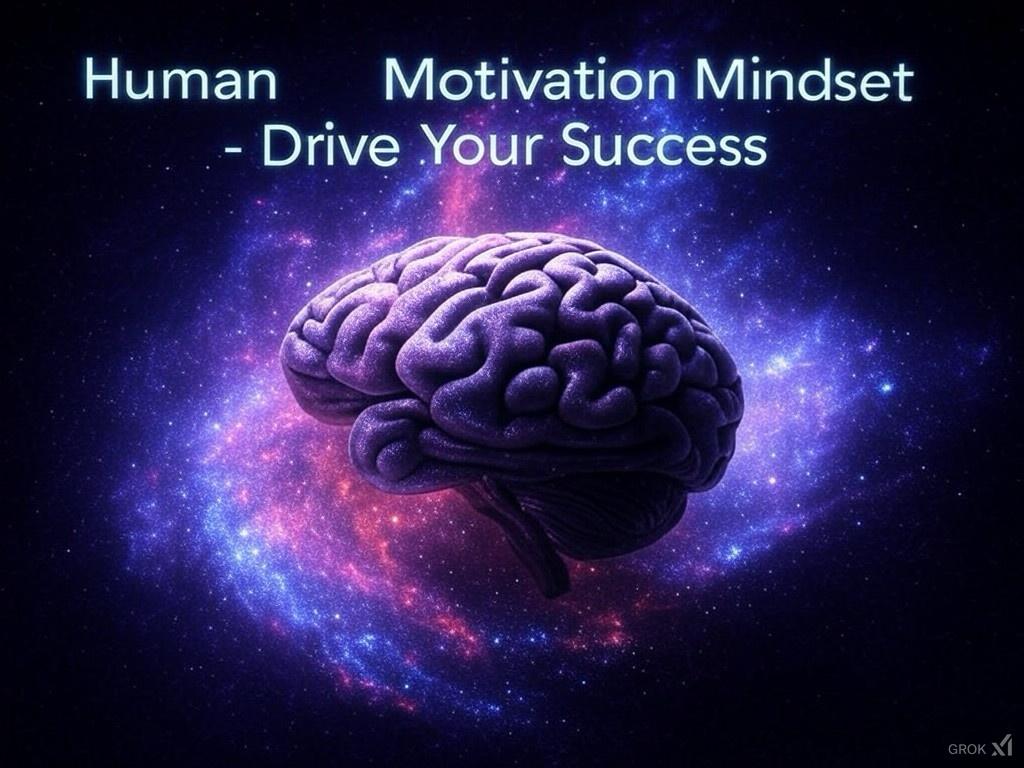In the quest to understand why we do what we do, the concept of the *human motivation mindset* plays a pivotal role. This article delves into the intricate layers of what drives us, exploring both the psychological theories and practical applications that shape our behaviors and aspirations.
The Essence of Human Motivation Mindset

At its core, the *human motivation mindset* refers to the cognitive and emotional framework that individuals use to navigate their desires, goals, and actions. It's not just about what motivates us but how we perceive, interpret, and sustain that motivation over time.
Intrinsic vs. Extrinsic Motivation
One of the foundational aspects of the *human motivation mindset* involves the distinction between intrinsic and extrinsic motivation:
- Intrinsic Motivation* is driven by internal rewards, such as the joy of learning, personal growth, or the satisfaction of mastering a new skill. When people are intrinsically motivated, they engage in activities for their own sake, which often leads to higher engagement and creativity.
- Extrinsic Motivation*, on the other hand, comes from external factors like rewards, recognition, or avoiding negative consequences. While effective in the short term, it might not sustain long-term engagement as effectively as intrinsic motivation.
The Role of Goal Setting
Setting clear, well-defined goals is a critical component of a successful *human motivation mindset*. Goals act as the roadmap for our motivational journey:
- SMART Goals* (Specific, Measurable, Achievable, Relevant, Time-bound) provide a structured approach to motivation, ensuring that individuals have clear targets to aim for, which can significantly boost motivation by providing a sense of direction and accomplishment.
Self-Determination Theory and Motivation
The *human motivation mindset* is deeply influenced by Self-Determination Theory (SDT), which posits that motivation flourishes when three basic psychological needs are met:
- Autonomy*: The need to control one's own life and behavior.
- Competence*: The desire to be effective in dealing with one's environment.
- Relatedness*: The urge to connect with others, to care for and be cared for by others.
These elements are crucial in fostering an environment where motivation can thrive, leading to more engaged, fulfilled individuals.
Growth vs. Fixed Mindset
Another pivotal aspect in the *human motivation mindset* is the dichotomy between a growth and fixed mindset:
- Growth Mindset* encourages the belief that abilities and intelligence can be developed through dedication and hard work. This mindset fosters resilience, a love for learning, and an embrace of challenges as opportunities for growth.
- Fixed Mindset*, conversely, holds that our capabilities are static, which can lead to a fear of failure and a reluctance to step outside one's comfort zone.
Motivation Through Mastery and Achievement
The pursuit of mastery and achievement is another key element of the *human motivation mindset*:
- Mastery Orientation* focuses on developing competence for its own sake, not just for outperforming others. This intrinsic drive leads to deeper engagement and satisfaction from the learning process itself.
The Impact of Feedback and Recognition
Feedback and recognition play significant roles in shaping the *human motivation mindset*:
- Constructive feedback helps individuals understand their progress, areas for improvement, and can motivate by showing that their efforts are noticed.
- Recognition, whether through praise, awards, or public acknowledgment, can validate a person's work, reinforcing positive behaviors and motivation.
Emotional Regulation and Motivation
How we manage our emotions directly impacts our motivation:
- Positive emotions can fuel motivation, making tasks feel more rewarding and less daunting.
- Negative emotions might require strategies like mindfulness or cognitive reappraisal to overcome and convert into motivational energy.
Social Influences on Motivation
Lastly, the *human motivation mindset* cannot be discussed without considering the social context:
- Peers, mentors, and societal norms can either enhance or hinder motivation. Positive social interactions can lead to higher motivation through encouragement, competition, or collaboration.
Conclusion
Understanding the *human motivation mindset* is crucial for personal growth, achieving goals, and fostering an environment where motivation can thrive. By delving into the nuances of intrinsic and extrinsic motivators, the significance of goal setting, the psychological needs as outlined by SDT, the advantages of a growth mindset, and considering emotional and social influences, we can better navigate our motivational landscapes. Whether in personal life, education, or the workplace, cultivating a robust *human motivation mindset* can lead to a more fulfilling, engaged, and productive life.
For more insights on how to harness your motivation and keep up with the latest in personal development, follow TechTalksToday for more updates.

